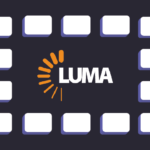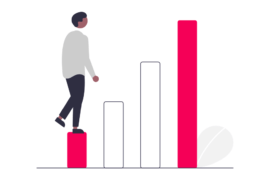Google rolling out their December 2020 Core Update has left many wondering what to do about their search engine ranking. Unfortunately, it has also left many wondering how to recover lost traffic because each update changes the way the algorithm ranks top results.
As for what it affects, the story seems to be repeating itself. Every time Google releases a core update, speculation about how it will influence rankings becomes abundant and everyone has an opinion as to what matters most.
In this blog post, we attempt to help publishers understand what core updates jargon such as E-A-T score and YLYM mean and what publishers can do about them.
The Algorithm is Improved Daily
Did you know that in 2018 Google made over 3,200 changes to the search algorithm? That is over 8 changes a day. While those are smaller tweaks, several times each year, Google will make a so-called “broad core algorithm update”.
The December 2020 core update released by Google was major and it brought additional changes to Google’s PageRank algorithm, not too long after the other two updates were released in January and May 2020.
For now, it seems that the core update has affected websites ranking among the top three results for a specific search term. It’s too soon to tell much more and data is still being analyzed by specialists and enthusiasts around the world.
However, a few things remain certain about search engine rankings no matter the update. Among them are investing in relevant and quality content, building quality backlinks, and solidifying your website’s authority.
These aspects may be more important than ever and may weigh more in your website’s ranking than you imagined.
If you were not aware, Google has official Quality Rankers guidelines, which are 176 pages long. There are two acronyms that are repeated again and again.
E-A-T is repeated 137 times and YLYM is reported 113 times. Seems that these terms are important enough to analyze a bit more.
That’s exactly why we’ve decided to take a deep dive into Google’s E-A-T and YLYM guidelines and how your website can use them to get better rankings.
So, buckle up and let’s see what all the fuss is about.
E-A-T with Google
The acronym E-A-T stands for Expertise, Authoritativeness, and Trustworthiness. It is one of the most important factors for Page Quality Rating. Google’s algorithm uses E-A-T to determine how relevant and how good a piece of content or a website is.
Considering that Google’s number one purpose is to deliver the best results to searchers, it’s only natural that E-A-T is regarded as a big deal in SEO.
Because E-A-T matters a lot when it comes to boosting SEO results, there are a few things you should keep in mind as you plan and develop new content. The key is to become a trustful source, with expert content creators, and relevant content. To do this, you must be very specific and clear about who writes your content and what makes it credible.
For instance, if you have a medical website, you want your audience and Google to know which doctor wrote a blog post on “How the human liver works”. You want to show their expertise, specify how many years they’ve been practicing medicine in this field. What you don’t want is to give your audience and search engines an opinion piece written by a baker. Not on this subject, for sure.
To make sure you nail E-A-T for your website, you should largely:
- choose content creators that have authority in their relevant fields
- make sure your content includes expert data and quotes from official or trustworthy sources
- pepper content with high-quality charts, infographics, videos, or photos
Best practices for optimizing content also include:
- using simple and easy-to-read language and sentence structures
- avoiding grammar or spelling mistakes
- optimizing title and headings to match relevant keywords
- improving content readability by using white space and breaking up text with relevant media
Now, on to what each element of E-A-T means. And how to make it work for your website.
Expertise
When content relates to specialized fields like medicine or law, expertise is crucial. But those are not the only topics where expertise matters. Google can’t be delivering content to searchers that put them in any danger. That’s why the algorithm checks details like the author’s name, bio, links to relevant data sources.
Google’s guidelines mention that “The standard for expertise depends on the topic of the page.” This means the more specialized the topic, the higher the standard.
However, being an expert in a specific topic doesn’t mean you need to hold a Ph.D. to write every piece of content on the Internet.
On the contrary! Search engines allow people to become experts in a field without having formal training, but a rather real-life experience. Google has a name for this. It calls it “everyday expertise”.
Think about vloggers unboxing stuff. Or bloggers writing restaurant reviews. Some of them have millions of followers and become subject matter experts simply by sharing their thoughts and feelings about specific products or services.
The point is expertise doesn’t need to mean years of university. Google doesn’t penalize a content creator or a website for “not having ‘formal’ education in a field”. Expertise can also be built over time and with quality content. The more high-quality your content is, the more traffic you will attract, and the more your expertise in a particular field will grow.
To get there, make sure your content is, first of all, relevant to what the searcher needs. It needs to serve a purpose and solve your audience’s problem. Then, invest time in making it truthful with proper research and relevant links. Last but not least, create content that is easy to understand and read, and answers questions. Plus, always keep it up to date. Your “2012 Foodie’s Guide to Rome” is probably in dire need of an update.
Authoritativeness
Although it may sound similar to expertise, it’s not. Being an expert won’t automatically make you an authority. Being recognized by other experts will.
Authoritativeness mostly relates to how much of an expert you are perceived as in your industry. If you are a leading figure in the world of fitness and training and deliver quality content, you will be getting a lot of shares and mentions. Other websites will quote you and link to your content. And, as we all know, backlinks are big in SEO.
To gain backlinks, your website needs to be a relevant and reliable source of information. This is what will help build your reputation and encourage others to trust you as a content creator. To do this, your content needs to be based on accurate data, fact-checked, and valuable. You must deliver high-quality content regularly and constantly. That’s how you build your influence in a certain niche.
Other elements that can build your E-A-T and YMYL authority are:
- user or community reviews
- any other form of social proof such as quotations or backlinks
- industry or niche credits
- relevant certifications and acknowledgments
- recommendations from industry influencers
- endorsements from industry experts
Trustworthiness
Trustworthiness is a major part of E-A-T and also has to do with establishing your website as a reliable source of information. By analyzing the creator’s credentials, the number of backlinks, shares, reviews, and quotations, Google can determine whether a website is a trustworthy expert source or not.
I mean, no one would appreciate and link back to some phony-baloney saying who-knows-what online. People appreciate and trust websites and people who deliver accurate and trustworthy data. They also penalize any factually inaccurate or misleading information. Therefore, only websites ticking the right boxes will move up in search results.
This T part of E-A-T is especially important for YLYM content. If you are not familiar with this acronym it stands for Your Life Your Money and we’ll be getting into more detail about it below.
Because YLYM content is more specialized, Google holds it to a higher standard. Websites containing financial, medical, or legal advice, for instance, need to come with some proof of expertise to be trusted.
According to Google’s guidelines, this is the YLYM content the search engine requires high E-A-T for:
- medical, financial, legal advice
- e-commerce
- news, articles, and journalistic content
- political or public institution webpages
- scientific articles
- high-stake topics advice (such as wellbeing, parenting, etc.)
- content that requires specialized skills (photography, film making, etc.)
To show that the information you deliver to searchers is credible and trustworthy, especially if you have a YLYM website, think trust factors. Social proof, endorsements, certifications, reviews. All of these show that the information you provide is dependable and can increase the level of trustworthiness.
Also consider things like making sure the information is factually correct, correctly sourced, and backed by evidence and data.
Security is important in proving you are trustworthy, too. So fit your website with a valid security certificate and add links to privacy policies in a visible location on your webpages.
And now, since we’ve touched on the subject, let’s see what YLYM is all about.
YLYM
YMYL, as mentioned, stands for Your Money Your Life. But what does that mean as far as content is concerned?
To Google, it means webpages delivering content that can affect searchers’ lives and finances in a meaningful way. Hence the “your money” and “your life”. In short, if content can impact a searcher’s decision as far as their health, livelihood, safety, or happiness go, it falls under the YMYL category.
Requiring more from websites with this type of content is part of Google’s policy to protect searchers from accessing inaccurate information that could potentially harm them. It makes a lot of sense if you think about it. Their main goal is to deliver the best search results to users. So, they need to take all of this seriously.
Imagine visiting a website that contains misleading information about things like voting, financial investments, drugs, or nutrition. Or even worse, medical procedures. People could read up on that information and end up making horrible mistakes.
That is why the guidelines single out certain niches like e-commerce, news, or financial, legal, and medical advice. YMYL category websites need to be much more aware of the E-A-T standards and abide by them to rank high in search engine results.
Guidelines
When it comes to the guidelines you should follow if you have a YMYL page, things are pretty clear. You need to be mindful of the fact that the content you create and distribute may impact people’s lives and you need to be very careful about how you research and deliver that content.
Your content needs to be high-quality throughout and of course meet search intent. That means fact-based, accurate, and in no way misleading. Anything that could negatively impact someone’s quality of life, health, financial or emotional stability, or safety is off the table. Your main objective, if you have a YMYL webpage, should be to tick all of the E-A-T boxes as well as you can.
As a rule of thumb, you should:
- provide accurate information
- provide sources where possible
- share information in the form of advice using the user’s perspective
- constantly update your content
- provide properly researched and in-depth content
- create long-form content to show authority and expertise
- increase the pages’ loading speed
- avoid page loading errors
- go for a clean and easy to read design
- build a clean website structure, with a clear purpose for each page
- build quality backlinks
- don’t skip the author bio to show that the information is trustworthy
- clearly display your contact information
- add social proof
- deliver what you promise (no misleading titles, links, etc.)
YLYM Tips
E-A-T and YMYL may seem like complicated concepts. However, they don’t have to be. They are just filters ensuring that Google results are relevant and high-quality. Top-ranked results need to stand out from the crowd through the value they offer users. Just think of them as standards or guidelines for publishing content online. Ones that you can’t skip on if you want to make it to the first page of search results.
Google’s recent updates, and the December 2020 one, in particular, have made it especially important for YMYL website owners and SEO specialists to integrate Google’s Quality rating standards and increase the quality of their web pages and content.
Here are a few YMYL webpage tips that can help you optimize with E-A-T in mind:
- identify if your website or web pages fall under the YMYL category
- follow Google’s E-A-T and Search Quality Raters guidelines
- avoid sharing advice on specialized topics if you don’t have the skills or expertise to do so
- put particular emphasis on proving your expertise in a particular field
- make sure your content creators are experts in their field and vet them before publishing their content
- fact-check and use trusted sources to back up your claims and advice
- focus your efforts on building quality backlinks and root out any low-quality links
- avoid any misleading or deceitful content
The short of it is that E-A-T and YMYL are intertwined. Together, they allow Google to filter and root out any low-quality content and serve its main purpose of delivering the best results to searchers. So, following these guidelines is not optional if you have big SEO goals.
Recent core algorithm updates have proven that the impact of E-A-T and YMYL is only going to grow as we move forward. My advice to you is to stay up to date on relevant guideline updates and be careful what you E-A-T.
Conclusion
Around 90% of Google’s income is from Google Adwords. Therefore you can see that it is essential that Google not only retains its dominant search engine position but continues to grow it. Every 0.1% of the search market translates into notable improvements in their profit bottom line.
To achieve this, Google has only one objective in mind – to provide the best search results. EAT and YMYL are just guidelines on how to inform the public about what is being implemented for several years.
These changes are good. They mean that it will become increasingly difficult to “play” the algorithm and rank bad content at top positions.
In any case, it means a lot of work for us all to provide the best content and browsing experience to the visitors putting their trust in Google.
About Vlad Falin
Vlad Falin is a blogger and founder at CostofIncome.com, where he writes to several thousand readers about digital marketing, various side hustles, and online business.

Shubham is a digital marketer with rich experience working in the advertisement technology industry. He has vast experience in the programmatic industry, driving business strategy and scaling functions including but not limited to growth and marketing, Operations, process optimization, and Sales.







